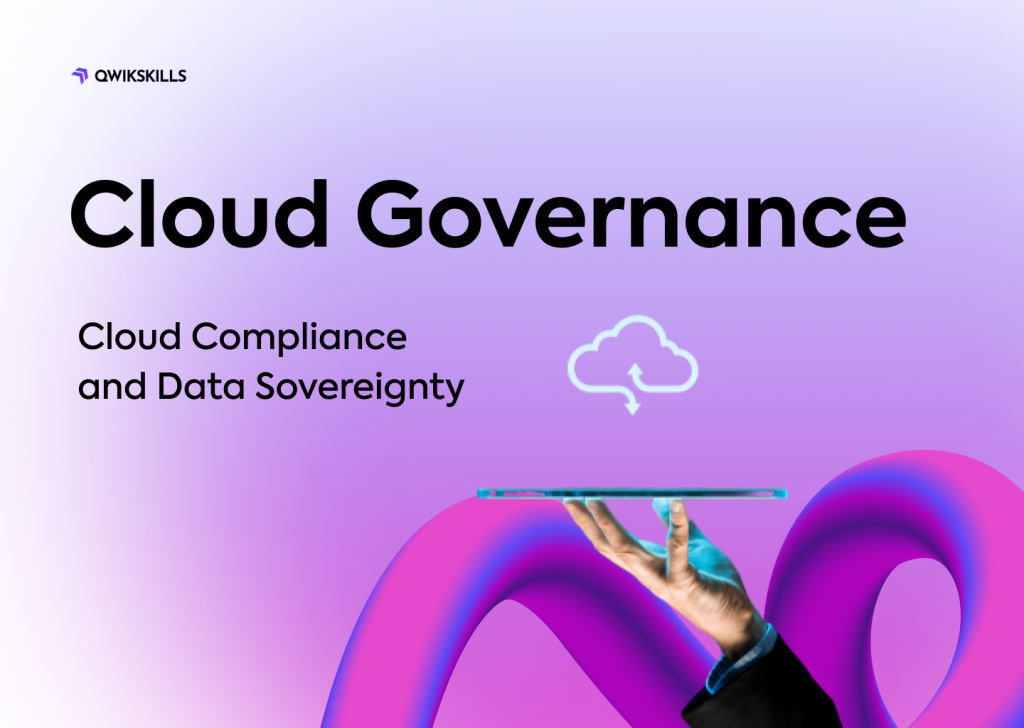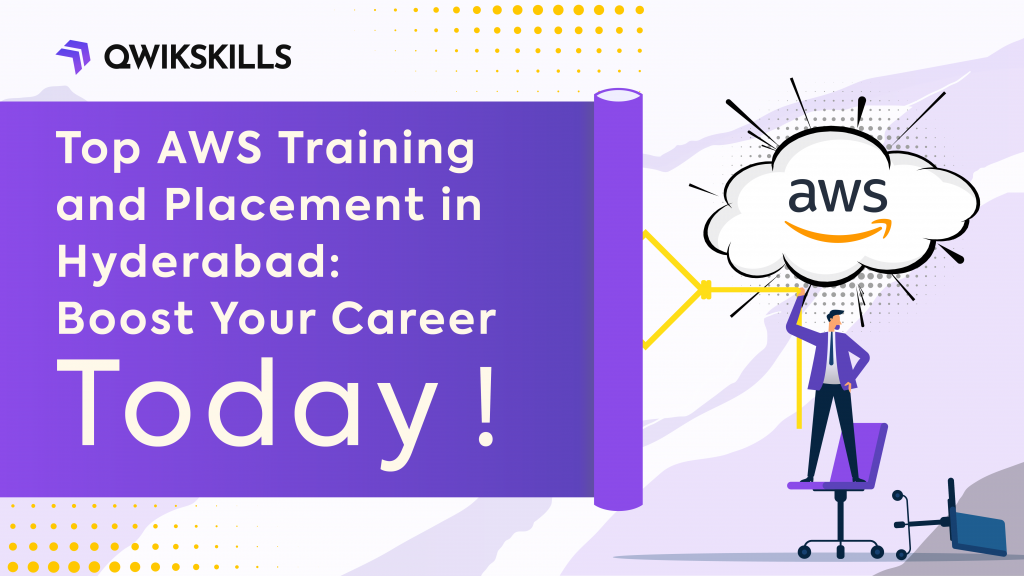Cloud computing has become a popular career choice for freshers in recent years. With the increasing demand for cloud-based services, there is a growing need for cloud computing professionals. However, getting into this field as a fresher can be overwhelming. In this blog, we will discuss the step-by-step guide on how to get into cloud computing as a fresher.
Step 1: Pick the appropriate course in cloud computing
The first step to discovering how to launch a career in cloud computing is selecting the appropriate cloud computing course. One might benefit from taking an introductory course to learn more about cloud computing. Fundamentals training can provide you with a deeper view of the numerous specialties available and help you decide whether the profession is suited to your personality and skill set (i.e. cloud engineering, DevOps, data science, etc.). It is challenging to break into the profession because the majority of “entry-level” cloud computing jobs demand years of prior experience. But enrolling in cloud computing courses with placement can help you get certified and ensure a career.
Step 2 – Get Certification
Professionals in cloud computing are frequently accredited by a respected cloud provider. After you’ve established the foundation, consider prospective areas of expertise. In order to find the finest certifications for your objectives and interests, research potential (and verified) certification providers.
Top certification benefits include:
1. Amazon Web Services (AWS)
With more than 200 services, AWS is a top cloud service provider. By demonstrating their cloud skills with a credential recognised by the industry, AWS cloud certification aims to help students achieve reputation and confidence. Careers in AWS are many because it is one of the top providers of cloud services according to AWS cloud certification. The demand for the abilities typically outpaces the supply. An AWS certification can be obtained in around three months or 120 hours.
Beginning Level
When starting your AWS certification path, this is regarded as the foundation level and is both a suggested and optional step before taking the Associate level certifications.
Partner Level
These certifications need more experience than the basic one, and you should be able to solve problems in AWS and have some practical knowledge of resource provisioning.
Professional Standing
You must have a solid grasp of the various facets of running, optimising, and troubleshooting solutions on AWS before pursuing this level of certification.
Exceptional Level
Specialty level certifications within AWS concentrate on a particular domain, therefore they demand in-depth technical expertise and experience in that field. Only experts with in-depth knowledge of AWS and prior experience with it are eligible to apply for this certification.
AWS provides a number of certifications, such as:
AWS Cloud Practitioner certified
Developer certified by AWS
Certified DevOps Engineer for AWS
Certified by AWS for Machine Learning
One of the top paying certifications, it can be found in the majority of cloud career job search results.
2. Windows Azure
The most difficult certification route in the cloud industry is to become a Microsoft Azure-certified professional. A total of 12 Microsoft Azure certifications are available, and there are three levels of exams:
Fundamental
Associate
Expert
These certificates only emphasize the acquisition of knowledge and abilities relevant to market work responsibilities. The first two prerequisite certificates are
Microsoft Certified: Azure AI Fundamentals Exam AI-900
Microsoft Certified: Azure Data Fundamentals Exam DP-900
A few further certificates are:
Microsoft Certified: Azure- Fundamentals AZ-900
Microsoft Certified: Azure DevOps Engineer- Expert Exam AZ-400
Azure Administrator – Associate Exam AZ-104, certified by Microsoft
Microsoft Certified: Azure Data Engineer – Associate Exams DP-200 and DP-201
Microsoft Certified Solutions Architect – Expert Exams AZ-303 and AZ-304
Azure AI Engineer – Associate Exam AI-100, Microsoft Certified
Additionally, Azure is a popular option for hybrid deployment and interfaces with Microsoft products that companies have been using long before the cloud.
3. Google Cloud Platform
On top of infrastructure tools and services, customers can construct applications and services using the Google Cloud Platform, a cloud computing platform. There are three levels:
Foundational Certification
You gain a thorough understanding of cloud concepts as well as the features, advantages, capabilities, and use cases of Google Cloud’s products, services, and tools.
Associate Certification
With a path to professional certification, the associate certification enables you to acquire the core skills needed to implement and maintain cloud projects.
Professional Certification
Key technical job responsibilities and cutting-edge competencies in Google Cloud product design, implementation, and management will be covered.
Professional certification requires at least three years of experience working in the cloud business and one year of experience using Google cloud.
Google Cloud certifications include, among others:
Cloud Digital Leader
The Cloud Engineer
Cloud Architect
Cloud Developer
Data Engineer
You may quickly switch between cloud providers thanks to the high demand for multi-cloud abilities, which increases your attractiveness to future employers. Select a training course that offers practical cloud experience so you can use what you learn While looking for work, keep refining your talents. Enroll in the cloud computing courses offered by KnowledgeHut, and placement is assured. To learn more about our programs and services, get in touch with us.
Step 3 – Build Projects
The next stage is to start putting theory into reality after completing the appropriate cloud certification according to your selection. Your profile will stand out and you’ll gain a competitive advantage thanks to building projects. It’s not necessary to make something large or intricate; even a simple project would do. You must try these projects if you are a newbie seeking advice on how to get a career in cloud computing:
Cloud-enabled attendance system.
Online blood bank system.
Online cloud-enabled book store system.
Data redundancy removal system.
Detecting data leaks using SQL injection.
Cloud-based bus pass system
create a chatbot.
sending texts securely.
feature for bug tracking.
Step 4: Creating a Cloud Portfolio
Compile projects from your training into a portfolio. Make sure your work is consistent from one project to the next because employers value this quality. Your cloud portfolio demonstrates your proficiency while the certification you will receive attests to your understanding of the subject. References in your portfolio who can attest to your expertise, abilities, and drive should be listed. You can outperform somebody with greater experience if you have strong recommendations.
Step 5: Apply for internships and freelancing
For those who lack experience, internships, and freelancing positions are wonderful options. Utilize the internship time to gain practical experience
Additionally, an internship is a fantastic way to make money while you study. You may be able to convert your internship to a full-time position based on your commitment and success as an intern. In addition, you can use your expertise in cloud computing to work as a freelancer on real-world projects and earn money.
Step 6: Widen Your Horizons
Expand your reach if you’re new to the cloud or considering a career change to cloud computing. To advance your career in cloud computing, networking is crucial, especially if you are just starting. You can interact with a lot of people who share your interests and are experts in your field by networking. They will also guide you to find the best training and contacts who can help you look for jobs
We strongly advise enrolling in the AWS cloud practitioner fundamentals certification program if you’re eager to learn more about cloud computing.
Conclusion
Because cloud technology is evolving so quickly, a person’s skill set must also change. For cloud developers, curiosity is a critical quality that can be more advantageous than experience. Why? Because it shows that you will make the effort to learn new things and develop your talents. There are many chances to accomplish this for nothing or very little money. Your ability to explain the elements of cloud apps and services will improve the more practical experience you have.
It’s possible that you’ll be turned down or that you won’t initially receive interviews. You must be dedicated to your objective and use failure to spur you on to the greater effort. Getting certified verifies your understanding of cloud computing. Your practical knowledge displays your capacity to use it. It’s never easy to find the top cloud engineering jobs, and there will be a lot of competition. A competitive advantage can be yours if you obtain certificates.



